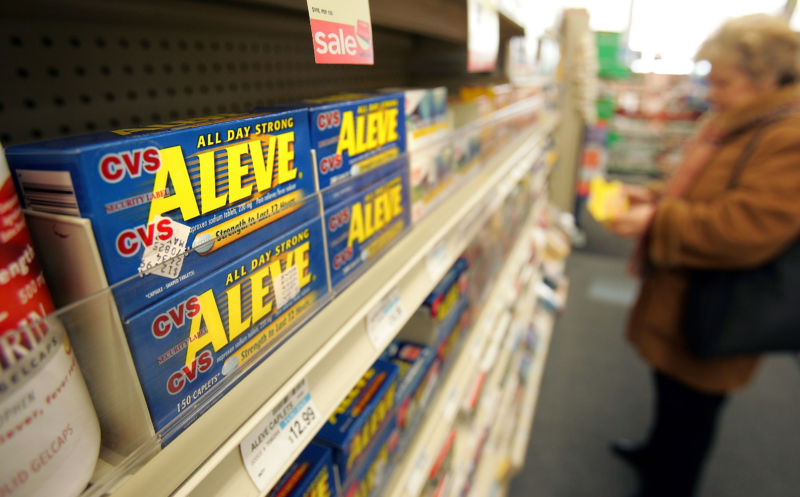
Irish drug company Horizon Pharma has hiked the price of a two-in-one painkiller by more than 2,000 percent in the past five years, according to a report in Financial Times
A 60-pill bottle of the drug combo, Vimovo, cost $138 in 2013 when AstraZeneca sold it to Horizon. The bottle now costs $2,979 after Horizon raised the price on 11 occasions.
Vimovo is a combination of the common painkiller naproxen and esomeprazole. Naproxen is the active ingredient in Bayer’s over-the-counter painkiller Aleve. A side effect of naproxen is gastrointestinal issues, including stomach pain and heartburns. As such, Vimovo combines it with esomeprazole, a proton-pump inhibitor that treats heartburn. Esomeprazole is sold over the counter by AstraZeneca as Nexium.
Bought separately, the two can cost as little as $36 total.
“Companies often try to come up with equations where one plus one equals three. In this case, it appears one plus one ends up costing 83 times more,” Michael Rea told Financial Times. Rea is the CEO of Rx Savings Solutions, which makes software that helps patients lower their drug bills.
Horizon also makes the two-in-one painkiller Duexis, which pairs painkiller ibuprofen with the antacid famotidine. The company charges $2,979 for a 90-pill bottle, while the drugs would cost as little as $15 if bought separately.
Nevertheless, Duexis and Vimovo are sometimes covered by US health insurance companies. And Horizon made $134 million in sales from both products in the first nine months of 2017, Rea said.
Rea added that he saw no reason patients couldn’t simply take the separate, over-the-counter versions of the drugs. But a spokesperson for Horizon argued that “there are no FDA-approved generic, over-the-counter, or clinically equivalent medicines to Duexis and Vimovo, and any assertion otherwise is completely inaccurate.”
The spokesperson also noted that Horizon offers assistance programs so that patients pay less than $10 out-of-pocket. But as the Financial Times notes, this common practice still ups overall health costs as insurance companies help cover larger drug bills.
https://arstechnica.com/?p=1261067

